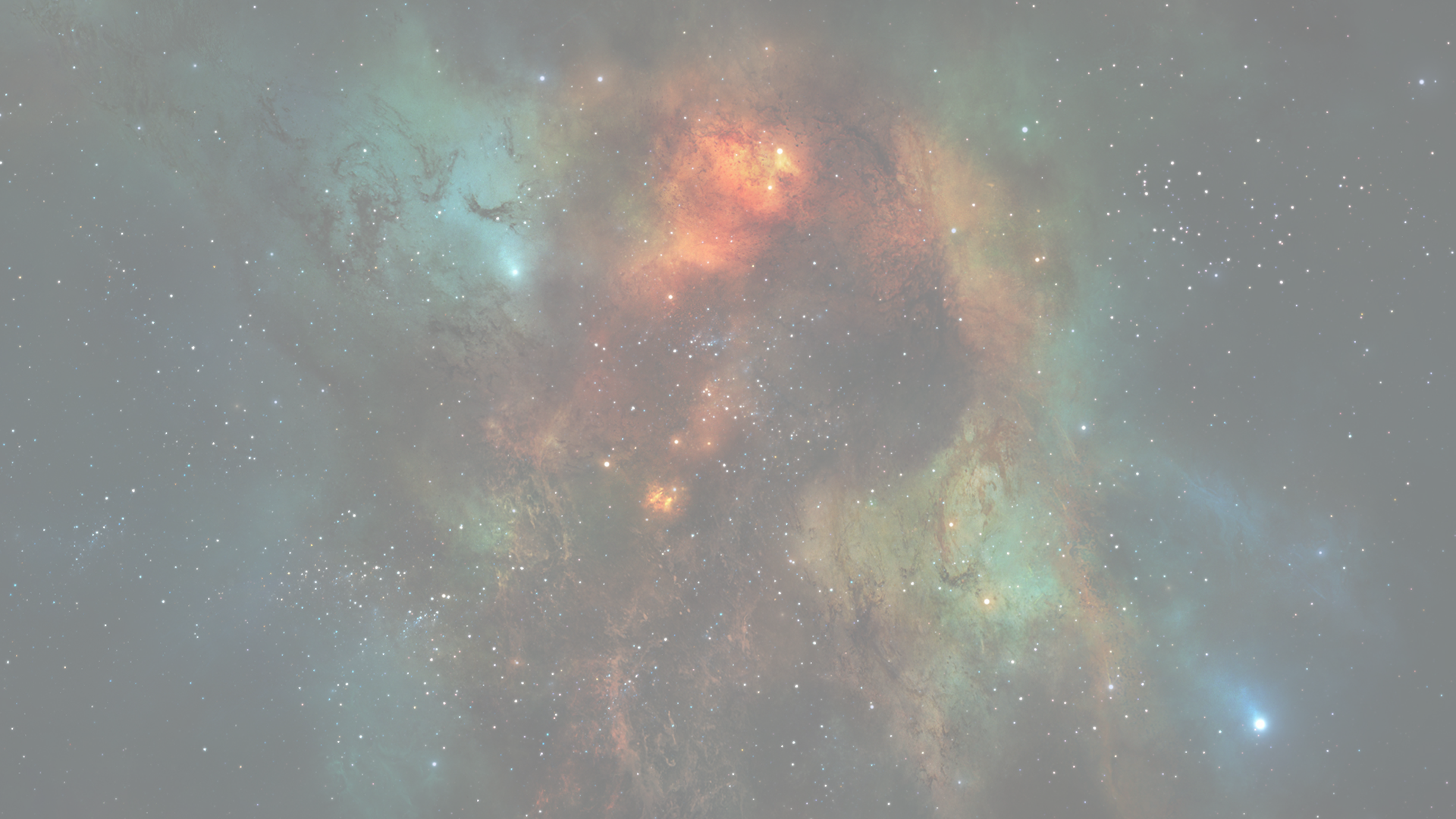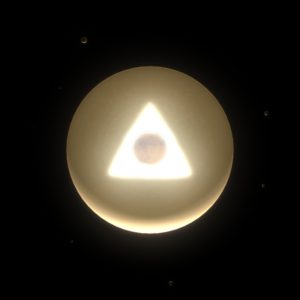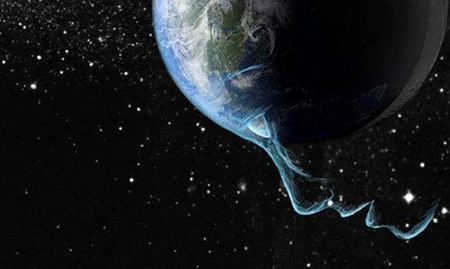


Biocentrism
Our minds literally create for us.
Our minds literally move and change things to make our world more livable.
Our collective minds do these on a much larger scale.
Every now and then, a simple yet radical idea shakes the very foundations of knowledge. The startling discovery that the world was not flat challenged and ultimately changed the way people perceived themselves and their relationships with the world. “If the earth were really round,” it was argued, “Then the people at the bottom would fall off.” For most humans of the 15th century, the notion of Earth as ball of rock was nonsense. The whole of Western natural philosophy is undergoing a sea change again, forced upon us by the experimental findings of quantum theory. At the same time, these findings have increased our doubt and uncertainty about traditional physical explanations of the universe’s genesis and structure.
Biocentrism completes this shift in worldview, turning the planet upside down again with the revolutionary view that life creates the universe instead of the other way around. In this new paradigm, life is not just an accidental byproduct of the laws of physics.
Biocentrism takes the reader on a seemingly improbable but ultimately inescapable journey through a foreign universe—our own—from the viewpoints of an acclaimed biologist and a leading astronomer. Switching perspective from physics to biology unlocks the cages in which Western science has unwittingly managed to confine itself. Biocentrism shatters the reader’s ideas of life, time and space, and even death. At the same time, it releases us from the dull worldview that life is merely the activity of an admixture of carbon and a few other elements; it suggests the exhilarating possibility that life is fundamentally immortal.
Biocentrism awakens in readers a new sense of possibility and is full of so many shocking new perspectives that the reader will never see reality the same way again.
FROM THE BACK COVER
Praise for Robert Lanza’s essay “A New Theory of the Universe,” on which Biocentrism is based:
Like “A Brief History of Time” it is indeed stimulating and brings biology into the whole. Any short statement does not do justice to such a scholarly work. Almost every society of mankind has explained the mystery of our surroundings and being by invoking a god or group of gods. Scientists work to acquire objective answers from the infinity of space or the inner machinery of the atom. Lanza proposes a biocentrist theory which ascribes the answer to the observer rather than the observed. The work is a scholarly consideration of science and philosophy that brings biology into the central role in unifying the whole. The book will appeal to an audience of many different disciplines because it is a new way of looking at the old problem of our existence. Most importantly, it makes you think.” —E. Donnall Thomas, 1990 Nobel Prize winner in Physiology and Medicine
“It is genuinely an exciting piece of work…. The idea that consciousness creates reality has quantum support … and also coheres with some of the things biology and neuroscience are telling us about the structures of our being. Just as we now know that the sun doesn’t really move but we do (we are the active agents), so [it is] suggesting that we are the entities that give meaning to the particular configuration of all possible outcomes we call reality.” —Ronald Green, director of Dartmouth College’s Ethics Institute
“Robert Lanza, a world-renowned scientist who has spanned many fields from drug delivery to stem cells to preventing animal extinction, and clearly one of the most brilliant minds of our times, has done it again. ‘A New Theory of the Universe’ takes into account all the knowledge we have gained over the last few centuries … placing in perspective our biologic limitations that have impeded our understanding of greater truths surrounding our existence and the universe around us. This new theory is certain to revolutionize our concepts of the laws of nature for centuries to come.” —Anthony Atala, internationally recognized scientist and director of the Wake Forest Institute for Regenerative Medicine at the Wake Forest University School of Medicine.
FROM THE PAPERBACK
“An extraordinary mind . . . Having interviewed some of the most brilliant minds in the scientific world, I found Dr. Robert Lanza’s insights into the nature of consciousness original and exciting. His theory of biocentrism is consistent with the most ancient traditions of the world which say that consciousness conceives, governs, and becomes a physical world. It is the ground of our Being in which both subjective and objective reality come into existence.” —Deepak Chopra, Bestselling Author (heralded by Time magazine as one of the top heroes and icons of the century).
“This is a brave new book. Instead of placing life as an accidental byproduct, the authors place life at the apex of universal existence and purpose. It is a very thrilling and disturbing read. While the proposals made in Biocentrism seem radical and counter-intuitive at first, a bit of reflection will soon make the images clearer and place us on the pathway to a better and more commonsensical mindset” —Michael Gooch, Author of Wingtips and Spurs
“. . . both interesting and worth the effort of reading it . . . From the way Lanza chooses to present his arguments, it’ss clear he has a solid grasp on esoteric disciplines . . . His style is conversational and his sense of wonder is as infectious as it is delightful.” —Midwest Book Review
FROM OTHER SCIENTISTS
“It’s a masterpiece — truly a magnificent essay. Bob Lanza is to be congratulated for a fresh and highly erudite look at the question of how perception and consciousness shape reality and common experience. His monograph combines a deep understanding and broad insight into 20th century physics and modern biological science; in so doing, he forces a reappraisal of this hoary epistemological dilemma. Not all will agree with the proposition he advances, but most will find his writing eminently readable and his arguments both convincing and challenging. Bravo” —Michael Lysaght, Professor of Medical Science and Engineering, Brown University and Director of Brown’s Center for Biomedical Engineering
“As an astrophysicist, I focus my attention on objects that are very large and very far away, ignoring the whole issue of consciousness as a critical part of the Universe. Reading Robert Lanza’s work is a wake-up call to all of us that even on the grandest scale we still depend on our minds to experience reality. Issues of “quantum weirdness” do have a place in the macroscopic world. Time and space do depend on perception. We can go about our daily lives and continue to study the physical Universe as if it exists as an objective reality (because the probabilities allow that degree of confidence), but we do so with a better awareness of an underlying biological component, thanks to Dr. Lanza.” —David Thompson, Astrophysicist, NASA’s Goddard Space Flight Center.
“Biomedical researcher Robert Lanza has been on the frontier of cloning and stem cell studies for more than a decade, so he’s well-acclimated to controversy. But his book Biocentrism is generating controversy on a different plane by arguing that our consciousness plays a central role in creating the cosmos. ‘By treating space and time as physical things, science picks a completely wrong starting point for understanding the world,’ Lanza declares. Any claim that space and time aren’t cold, hard, physical things has to raise an eyebrow. . .Other physicists point out that Lanza’s view is fully in line with the perspective from quantum mechanics that the observer plays a huge role in how reality is observed.” —Alan Boyle, Science Editor, MSNBC
“So what Lanza says in this book is not new. Then why does Robert have to say it at all? It is because we, the physicists, do not say it—or if we do say it, we only whisper it, and in private—furiously blushing as we mouth the words. True, yes; politically correct, hell no!’” —Richard Conn Henry, Professor of Physics and Astronomy, Johns Hopkins University
“One of the most interesting books to cross my desk this summer was Biocentrism, written by Dr. Robert Lanza, who is probably best known for his groundbreaking work with stem cells. The book is an out-and-out challenge to modern physics. I found the attack on physics to be pretty compelling” —Eric Berger, Science Editor, Houston Chronicle
“Now that I have spent a fair amount of time the last few months doing a bit of writing, reading and thinking about this, and enjoying it and watching it come into better focus,
And as I go deeper into my Zen practice,
And as I am about half way through re-reading Biocentrism,
Read more at http://www.robertlanza.com/biocentrism-how-life-and-consciousness-are-the-keys-to-understanding-the-true-nature-of-the-universe/#sdVAO4iqWlhGTmFU.99